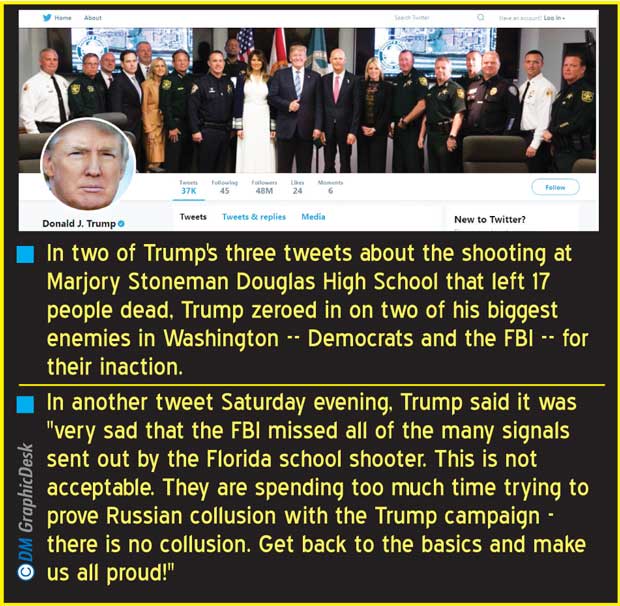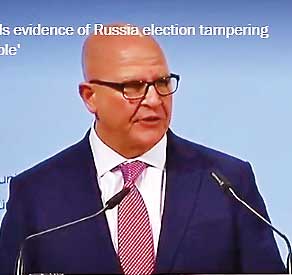20 Feb 2018 - {{hitsCtrl.values.hits}}

By Michael Birnbaum, Griff Witte ·(c) 2018, MUNICH
Amid global anxiety about President Donald Trump’s approach to global affairs, U.S. officials had a message to a gathering of Europe’s foreign policy elite this weekend: pay no attention to the man tweeting behind the curtain.

U.S. lawmakers - both Democrats and Republicans - and top national security officials in the Trump administration offered the same advice publicly and privately, often clashing with Trump’s Twitter stream: the United States remains staunchly committed to its European allies, is furious with the Kremlin about election interference and isn’t contemplating a preemptive strike on North Korea to halt its nuclear programme.
But Trump himself engaged in a running counterpoint to the message, taking aim on social media at his own national security adviser, H.R. McMaster, because he “forgot” on Saturday to tell the Munich Security Conference that the results of the 2016 weren’t affected by Russian interference, a conclusion that is not supported by U.S. intelligence agencies. They say they will likely never be able to determine whether the Russian involvement swung the election toward Trump.
The determination to ignore Trump’s foreign-policy tweets has been bipartisan.The question of whom they should believe - the president or his advisers - has befuddled European officials. German Foreign Minister Sigmar Gabriel confessed Saturday that he didn’t know where to look to understand America.
“Is it deeds? Is it words? Is it tweets?” he asked.
He said he was not sure whether he could recognize the United States.
The Washington Post · Feb 18, 2018 -
15 Nov 2024 9 minute ago
15 Nov 2024 1 hours ago
15 Nov 2024 2 hours ago
15 Nov 2024 2 hours ago
15 Nov 2024 3 hours ago